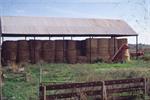
Some industries come and go; while other industries just change!
Cigarette production and bison hunting might not be the big employers that they once were; but farming is one industry we cannot do without. Man will always need food, clothing and fuel; and agriculture is the way we get those things.
This doesn't mean that farming is not changing though: it is!
Farms once employed large numbers of unskilled; relatively uneducated people, producing less per acre; and in a less sophisticated way.
Developments in science and technology have been changing how farming happens though. Today's industry is more sophisticated, mechanised and through application of modern technologies; the modern farm can produce a lot more per acre, with a lot less people working on the farm.
What does this mean?
- Farming is an industry that isn't going away -it can employ you for your entire life
- Farms increasingly need managers and technicians, rather than unskilled labourers
- Ongoing changes (technological and structural) are creating new opportunities constantly
- Farming suits anyone with a sharp mind, a technological bent and a personality that relishes change and challenge.